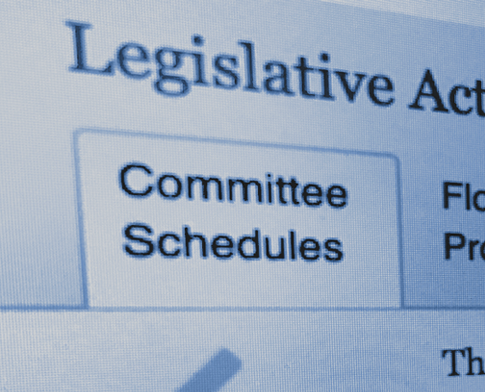Energy Update (December 22)
Spending Deal
On Thursday (Dec. 19), Congress finalized legislation to fund the government for FY 2020 in a spending measure that will increase federal budgets by $49 billion.[1] The threat of a year-long continuing resolution (CR) sped up the process and led top negotiators to arrive at a compromise. Defense spending will increase by $22 billion, and another $27 billion will be spread out amongst other agencies. The Department of Energy’s budget will increase by $2.9 billion, with a majority of the increase going towards clean and renewable energy. The spending bill also contains $10 million for research and development of direct air capture, along with $23 million going towards research into extracting rare earth elements from coal, coal waste, and toxic acid mine drainage. DOE’s Office of Nuclear Energy received funding to conduct two demonstration projects for advanced nuclear reactors. Additionally, the agreement included language that could potentially hurt efforts to build a petrochemical storage facility on the Ohio River. The bill mandates that the DOE use the loan guarantee program for “projects that avoid, reduce, or sequester air pollutants or anthropogenic emissions of greenhouse gases and employ new or significantly improved technologies as compared to commercial technologies in service in the United States.”[2] The Environmental Protection Agency will see its budget increase around $200 million, and the Land Water Conservation Fund will get around $495 million, the highest level in more than 15 years. Most of the EPA’s budget is spread across bipartisan programs, such as clean air, water grants, and conservation efforts. The bill also provides $300 million for PFAS cleanup work and research. “If I take a step back and realize a year ago, when we were all waving our arms around about PFAS, nobody knew what we were talking about. Now you look at what we actually got in, it’s pretty substantial,” said Rep. Dan Kildee (D-MI), co-chair of the Congressional PFAS Task Force.[3]
Tax Extenders
As part of the government funding bills, Congress extended a variety of expiring and expired tax breaks.
Energy extenders that made it into the bill include:
- Biodiesel and Renewable Diesel
- Second Generation Biofuel Producer Credit
- Nonbusiness Energy Property
- Qualified Fuel Cell Motor Vehicles
- Alternative Fuel Refueling Property Credit
- 2-Wheeled Plug-In Electric Vehicle Credit
- Credit for Electricity Produced from Certain Renewable Resources
- Production Credit for Indian Coal Facilities
- Energy Efficient Homes Credit
- Special Allowance for Second Generation Biofuel Plant Property
- Special Rule for Sales or Dispositions to Implement FERC or State Electric Restructuring Policy For Qualified Electric Utilities
- Extension and Clarification of Excise Tax Credits Relating to Alternative Fuels
- Oil Spill Liability Trust Fund Rate
The biggest focus of these extenders was around wind producers, biofuel producers, and energy efficiency.[4] Wind power developers received an extra year of the production tax credit and gives producers an extra year to start construction on projects. The package also reinstated a $1-per-gallon credit for blending biodiesel into regular diesel until 2022, and blenders can retroactively claim the credit that expired in 2017. Additionally, the alternative fuel tax credit was extended until 2020, and can be retroactively claimed from when it expired in 2017. The credit for residential and commercial energy efficiency improvements were extended through 2020.
Notably missing from the energy extenders package were:
- Raising the 200,000-vehicle cap on the electric vehicle tax credit
- An extension of the investment tax credit for solar producers
- Energy storage producer’s independent access to the investment tax credit
Congress passed the spending bills on Thursday (Dec. 19).
References
[1] Emma, Caitlin and Scholtes, Jennifer. “Congress sends bipartisan $1.4T spending deal to Trump, ending shutdown threat.” Politico Pro, 19 Dec. 2019. https://subscriber.politicopro.com/article/2019/12/congress-sends-bipartisan-14t-spending-deal-to-trump-ending-shutdown-threat-1852032
[2] Dillon, Jeremy and Clark, Lesley. “5 DOE takeaways in the spending bill.” EnergyWire, 18 Dec. 2019. https://www.eenews.net/energywire/stories/1061839325
[3] Cahlink, George. “Winners and losers in the year-end spending deal.” E&E Daily, 20 Dec. 2019. https://www.eenews.net/eedaily/stories/1061857847/search?keyword=pfas
[4] Wolff, Eric. “Wind and biofuels win in tax deal that snubs storage, solar, and EVs.” Politico Pro, 17 Dec. 2019. https://subscriber.politicopro.com/article/2019/12/wind-and-biofuels-win-in-tax-deal-that-snubs-storage-solar-and-evs-1850471
HOUSE.GOV
The Week Ahead
For the main events of the next week and more, go straight to the key events on the house.gov website.
SENATE.GOV
The Week Ahead
For the main events of the next week and more, go straight to the key events on the senate.gov website.


